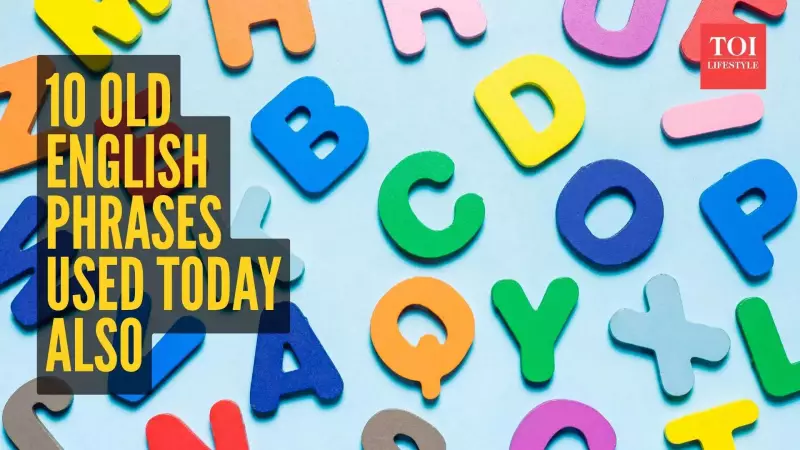
Have you ever stopped to think about the strange English phrases that roll off your tongue during casual conversations? Many expressions we consider modern actually have roots stretching back centuries to Old English times. These linguistic survivors have journeyed through time to become staples in contemporary Indian English.
The Living Legacy of Ancient Expressions
Language evolves constantly, yet some phrases possess remarkable staying power. In India, where English has developed its own unique flavor, these historical expressions have found a comfortable home in our daily interactions, from Mumbai offices to Delhi markets.
10 Timeless Phrases Still Thriving in Indian English
- 'Break the ice' - This chilling metaphor for initiating conversation dates back to the 17th century, when special ships called 'icebreakers' would clear frozen waterways for other vessels.
- 'Bite the bullet' - Before anesthesia, soldiers would literally bite on bullets during surgery. Today, Indians use it when facing any unpleasant but necessary task.
- 'Turn a blind eye' - Admiral Nelson famously put his telescope to his blind eye to ignore orders he disagreed with. Now it describes convenient ignorance in everyday situations.
- 'Caught red-handed' - This legal term originally referred to catching someone with blood on their hands after poaching. Modern usage covers any caught-in-the-act scenario.
- 'Piece of cake' - 1930s American slang that perfectly captures how Indians describe effortlessly achievable tasks.
- 'Cost an arm and a leg' - Post-World War II expression referring to the high price of portrait paintings (full-body portraits cost more). Now describes anything excessively expensive.
- 'Butterflies in your stomach' - This delightful description of nervousness appears in various cultures, perfectly capturing that fluttery pre-event feeling.
- 'Beat around the bush' - Medieval hunting practice where beaters would literally strike bushes to flush out birds. Today it means avoiding direct discussion.
- 'Barking up the wrong tree' - 19th century American hunting reference to dogs mistakenly targeting empty trees. Now indicates misguided efforts.
- 'Spill the beans' - Ancient Greek voting system where beans indicated choices; spilling revealed the secret results prematurely.
Why These Phrases Endure in Indian Context
The remarkable survival of these expressions in Indian English speaks volumes about our linguistic adaptability. These phrases have transcended their British origins to become integral parts of our multicultural dialogue, often used alongside native Indian language expressions.
Their continued popularity demonstrates how language preserves history while serving contemporary communication needs. Each time we use these phrases, we're unconsciously participating in a centuries-old linguistic tradition that connects modern India with historical English in fascinating ways.





